How To Create A Guest Network On Wifi
In the digital age, your Wi-Fi password is probably the first thing your friends and family members ask for when they visit your home. But this can lead to certain problems.
With multiple devices using your bandwidth, you must be prepared for online slowdowns and potential malware infestations, as well as feeling slightly uncomfortable when asked to share your password.
Certainly, you can simply choose to avoid giving anyone access to your internet connection. Still, if you don't want to frustrate your loved ones and feel like a scrooge, the best option is to set up a guest Wi-Fi network. Don't be worried, it's extremely easy—we'll show you how. But first, let's find out what a guest Wi-Fi network actually is.
What is a guest Wi-Fi network?
A guest Wi-Fi network is an access point on your router that's separate from your home network. It allows guests to connect to the internet without compromising the safety of your home devices. If, for instance, one of your friends connects to your home Wi-Fi with an infected device, you won't have to worry about the malware spreading to your own home network.
Pro tip: If you already have a guest network setup, don't stop there. With Clario, you can secure your devices and sensitive information more effectively. The app offers real-time safe browsing, ad blocking, VPN, and Wi-Fi network protection. And by the way, you can test it out for free with our 7-day trial.
If you don't have a separate Wi-Fi network for your guests, read on to learn the following:
- How to create a guest network at home
- How to secure a guest Wi-Fi network
- Should you connect your IoT devices to your guest network?
How to create a guest Wi-Fi network at home
Now, it's time to learn how to set up a guest network to keep your visitors out of your home Wi-Fi. Unfortunately, there's no single workflow as each router model has its own peculiarities. But don't worry—it's always easy. Here's what the whole process looks like with most routers:
Step 1: Access your router's admin dashboard. In your browser's address bar, type 192.168.1.1 and press Return (or Enter if you're using a PC).

Step 2: Go to your Wi-Fi settings. Once you enter the IP and press Return, you'll access your router's admin panel. Press Advanced to access the settings.
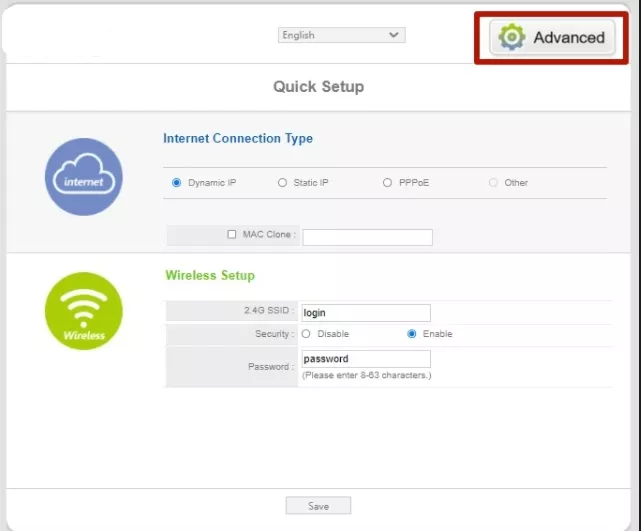
Step 3: Access your guest network settings. To get there, click on Wireless and choose Multiple SSID in a drop-down menu.
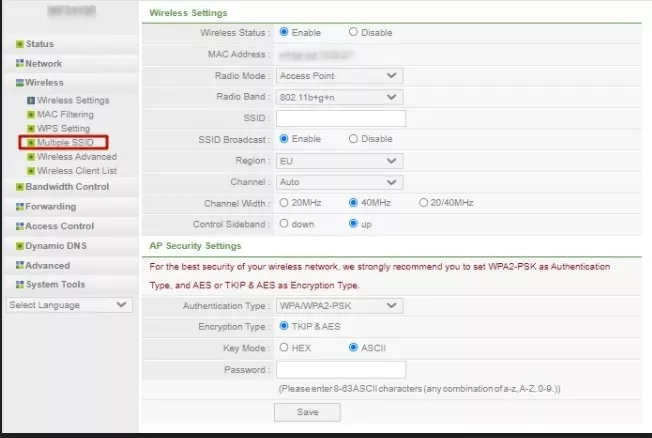
Step 4: Set up guest Wi-Fi. You can do this in a few steps:
- Because guest networks are often switched off by default, choose Enable (in the Status field) to turn them on.
- Name the guest network. Choose any name you like and enter it into the SSID field.
- In the Access Control drop-down menu, choose WAN to restrict your guests from accessing any files in your network. If you want to make your network storage accessible, choose LAN-WAN instead.
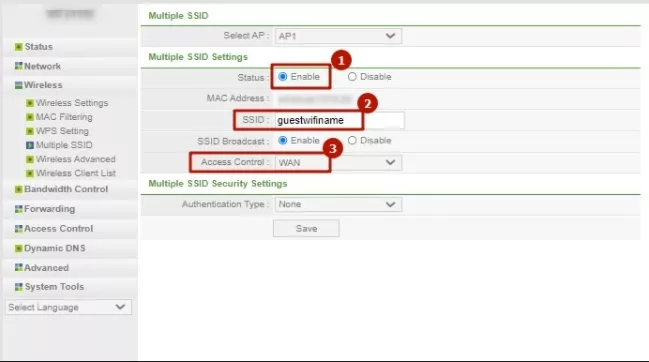
Step 5: Secure your guest network. Here's how:
- In the Authentication Type drop-down menu, select WPA/WPA2-PSK.
- Create a password. Avoid using a password that people can easily guess, such as your pet's name or your birthdate. However, you need to make it memorable so you can easily pass it on to your guests.
- Click Save to save all the settings.
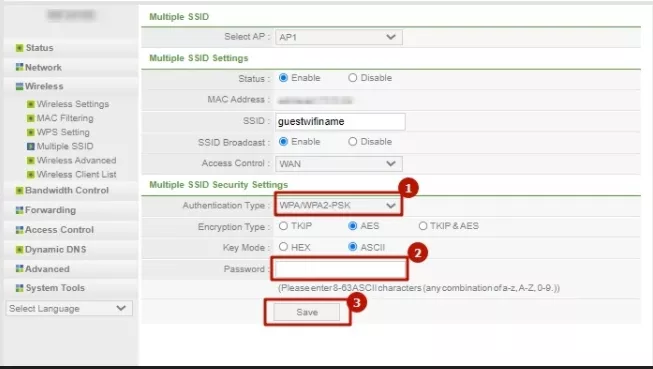
A guest Wi-Fi network helps ensure you're not exposing your own devices and data to threats while sharing your bandwidth with others. But even if your guest network is separate from your home Wi-Fi, you must still make an effort to keep it secure. Here, we'll show you how.
How to secure your guest Wi-Fi network
Now you know how to create a guest Wi-Fi network at home, the next question is how to make it secure. After all, you owe it to your loved ones to keep their data safe. What's more, you may have IoT devices connected to the guest network, so just keep these simple tips in mind.
Choose the guest network name wisely
Keep in mind that people nearby are able to see your Wi-Fi as one of their connection options. Make sure you set a name that doesn't tell everyone the network belongs to you. If you do, then you're making yourself an easy target for hackers.
Set rules for internet usage
Don't hesitate to tell your guests what they may and may not do while using your Wi-Fi. Shady websites should be off limits.
Monitor usage
Some routers provide bandwidth usage statistics, so you can check the devices actually using your network. Remember when your neighbor asked to use your Wi-Fi for a day while his router was glitching? Or when you gave your uncle Joe the password to your network last year (a decision you might still be regretting)? Well, it's time to cut the metaphorical cord on these unwanted connections.
Set limits for bandwidth use
Wi-Fi guest access management can help you set limitations. Make sure your guests are not eating up your valuable bandwidth, especially if it's slowing down your own connection. For instance, you can tell your router to prioritize Skype over Netflix. Just look for the dedicated section in your router's admin panel,
Choose the most advanced encryption
When installing Wi-Fi, you'll notice a few router security options. The most common ones are WPA, WPA2, and WPA3. They ensure your wireless signals are encrypted. To enhance the security of your network, choose the option that provides the most advanced security level.
WPA is the least secure but is readily available even in older gadgets. WPA3 is the most secure but may only be available in newly released devices. In most cases, WPA2 is your best option.
Keep your router drivers updated
Updating your router drivers to the latest version can protect your system. It helps ensure you're getting improved performance at the highest security level.
Now let's address one of the primary concerns when setting up a guest network. Is your guest network the ideal home for your IoT devices?
Use a trusted cybersecurity solution
An all-round cybersecurity app like Clario will provide you with essential security features including real-life anti-malware protection, ad-blocker, and VPN. It will also protect your Wi-Fi connection. Here's how you can secure your home network:
1. Download and install Clario
2. Create a Clario account

3. Go to Network
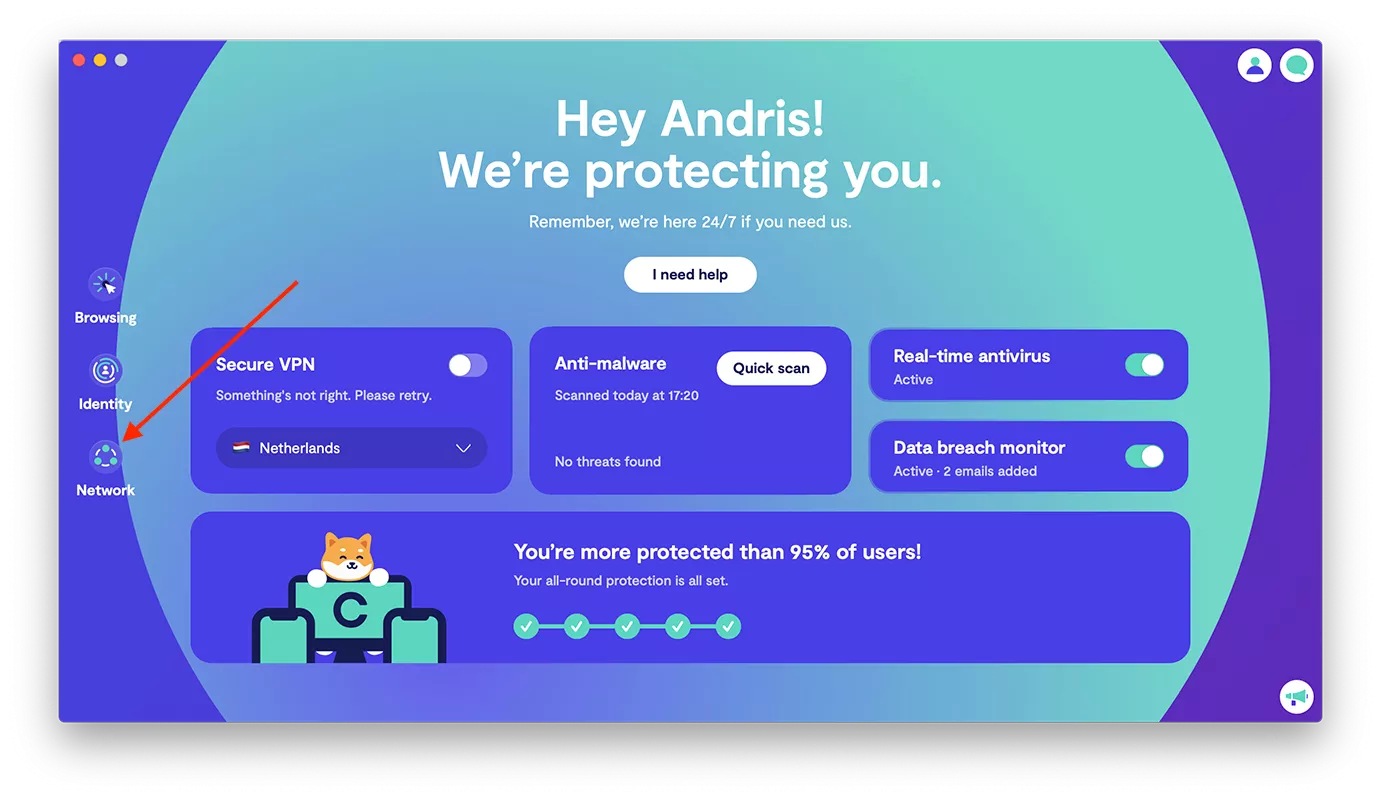
4. Click Next on Home network tab
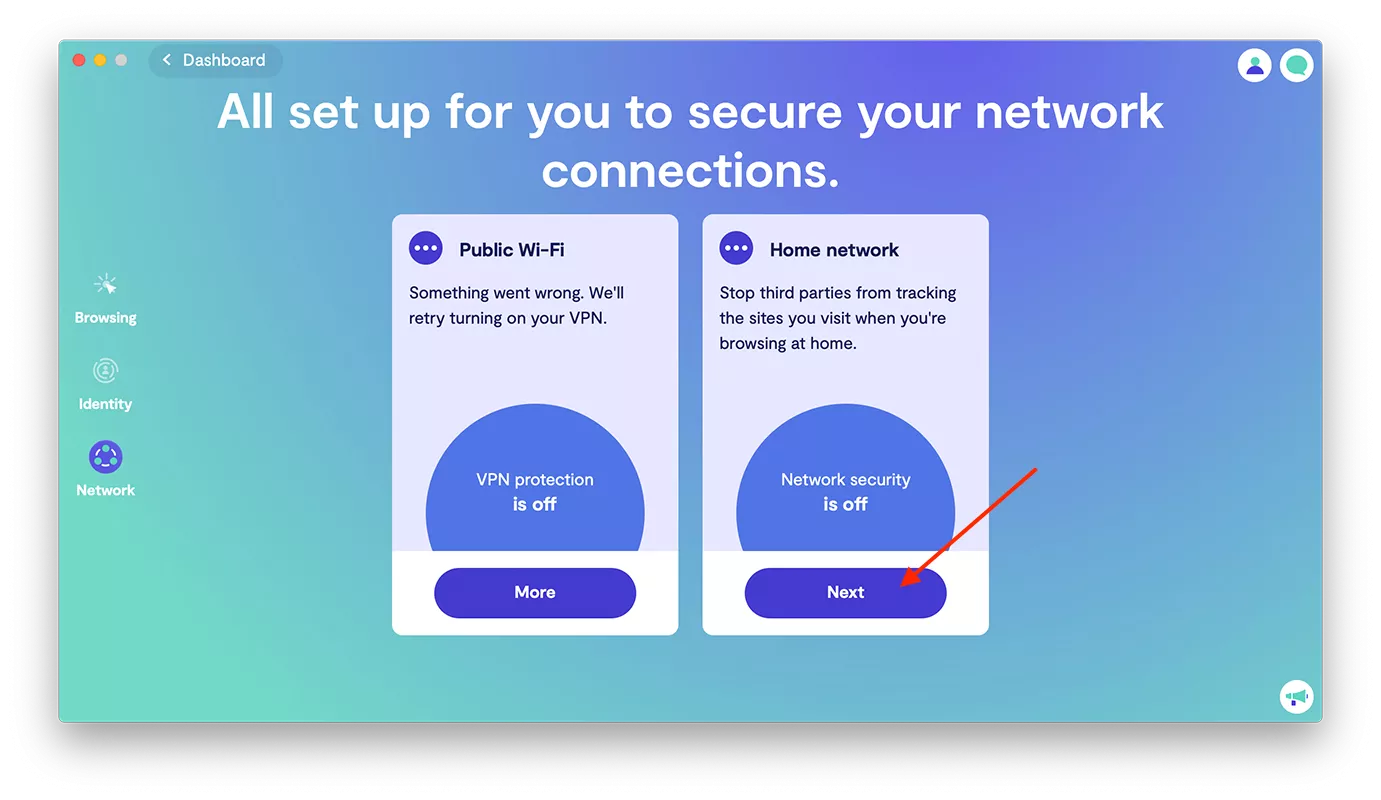
5. Turn on Home network security. You're all set now.
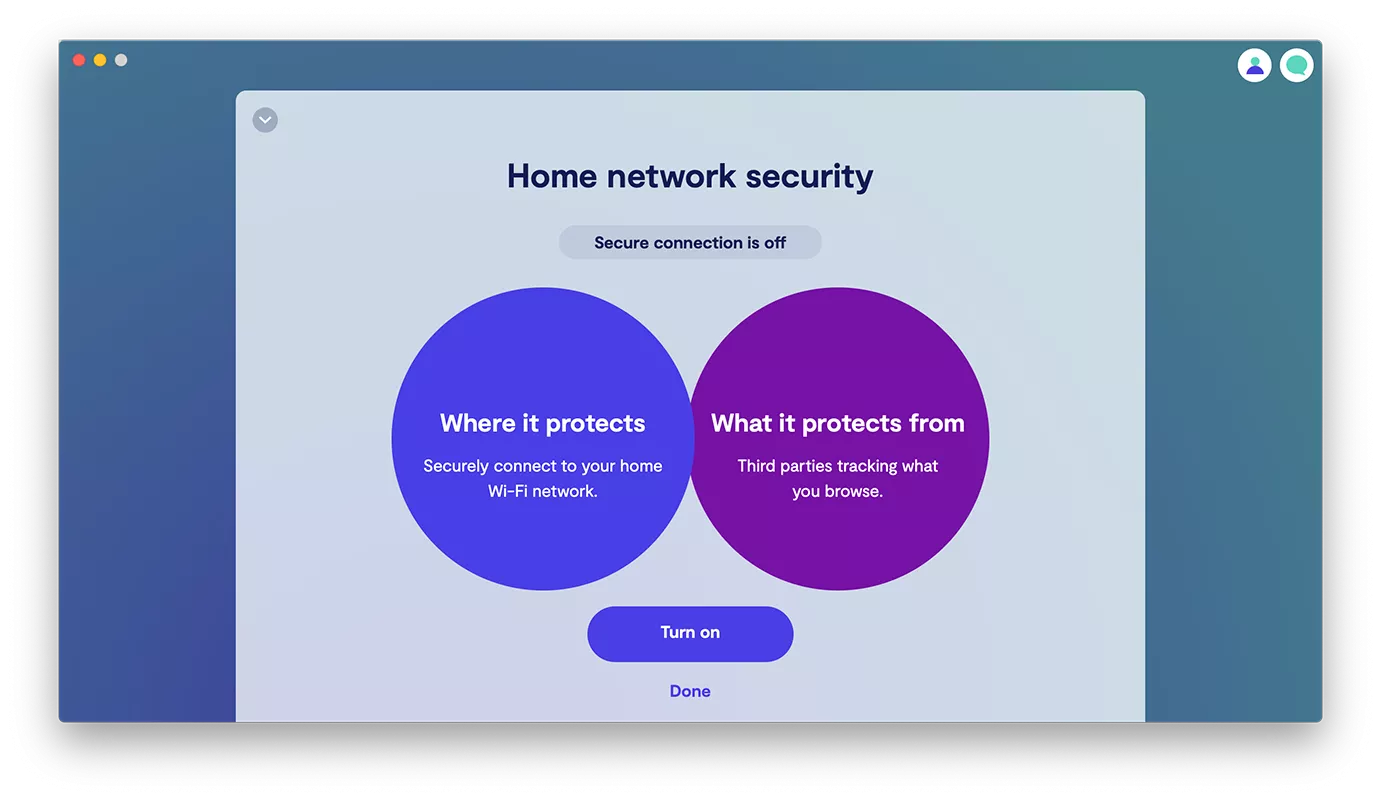
Should you connect your IoT devices to your guest network?
Setting up a guest network is not only a great idea if you're entertaining friends and family at your place. It also helps you isolate any IoT devices that are potentially vulnerable to hacking.
Your fridge, heating system, and TV may now contain personal data that hackers can steal. Worse still, the attackers can use these low-value targets to get to your more valuable computers and smartphones. The danger is so real that the FBI recommends isolating these smart devices on a separate network.
Because some IoT devices work best when connected to your primary network, providing your guests with unrestricted access to these devices might be tricky. Luckily, most popular IoT ecosystems provide a guest mode. For example, if you enable the Google Home guest mode, all of your visitors within the same room will be able to access it from their devices without connecting to your master Wi-Fi.
Pro tip: A guest Wi-Fi gives an additional layer of protection to your IoT devices and home network. But it's still not the be-all and end-all when it comes to data security. Luckily, you can gain total peace of mind by installing Clario; an all-around security app that provides anti-malware, VPN, anti-trackers, and real-time web protection. Get a 7-day Clario trial and see if it works for you.
* * *
Now you know how to set up a guest Wi-Fi network at home, your friends and relatives can stay online without interfering with the sensitive data in your master network. The guest-only home Wi-Fi network is very convenient for providing smooth and instant access to the internet during a party or family visit.
How To Create A Guest Network On Wifi
Source: https://clario.co/blog/create-guest-network-at-home/
Posted by: lopezwavers.blogspot.com

0 Response to "How To Create A Guest Network On Wifi"
Post a Comment